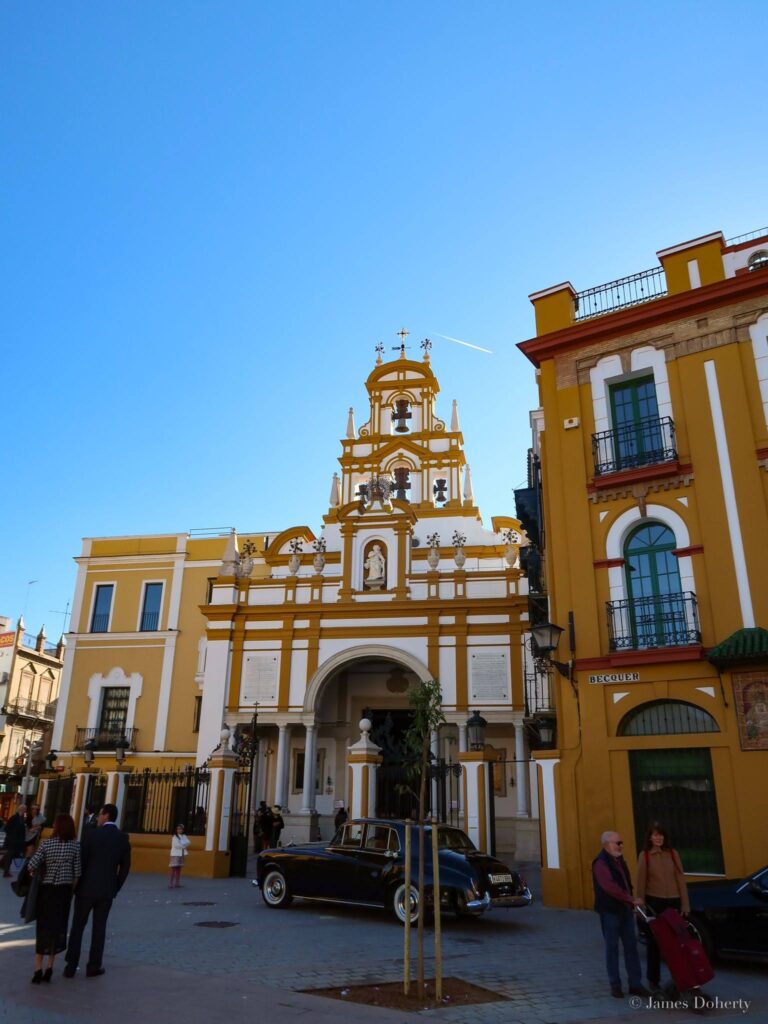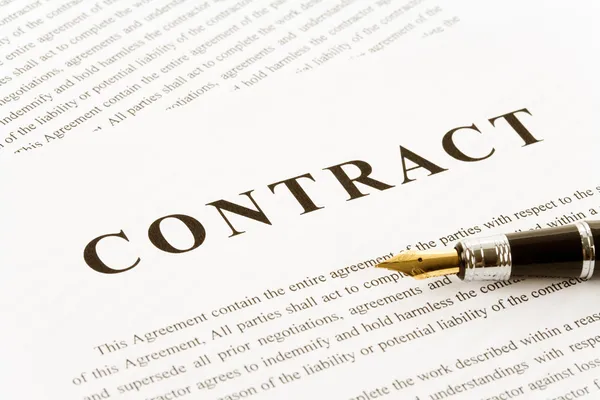Make it happen
Tell us about your project and we’ll get back to you with a detailed proposal as soon as possible.
In this article, we provide a step-by-step guide on how to buy a property in Spain. We explain the different options available to you whether you are a member of the Spanish community, or a foreign buyer.
The process of buying a property differs depending on the country you want to buy in, the type of property you wish to purchase and the purpose for which you are buying it.
Despite Brexit, British citizens continue to be the biggest investors in the Spanish property market, although in recent years, Scandinavians have been steadily investing in real estate in Spain too.
There are no minimum requirements for a Spanish citizen or a permanent resident when it comes to property for sale in Spain.
Buying a home in Spain is a simple procedure for non-residents, you just have to have a NIE.
This is a unique and exclusive personal number, and it is essential for carrying out any kind of economic transaction in Spain.
You can apply for a NIE, through your Spanish Embassy or consulate, or, if you are in Spain, by going to an Office for Foreigners or a police station.
Having a Spanish bank account is not required, but it is advisable as all expenses related to the sale of the house, as well as future bills, must be paid in Spain. To open an account in Spain it is now mandatory to provide your national tax number (For UK citizens this would be your National Insurance number or Social Security number for citizens of the USA) due to a new anti-money laundering banking policy.
When buying property in Spain, you will need to provide proof of funds or alternative funding to acquire a property. At Ignit-IUS we’ll help you set up the right structure for your personal circumstances.
This defines newly built dwellings which have not been passed on to third parties since construction.
Dwellings that have already been inhabited. In pre-owned properties you will find different states of habitability.
New dwellings on which the prospective owner will make a commitment before construction is finished, or even started. They will get an understanding of the property’s characteristics from the de developer.


Buying a home from an individual can give you the benefit of further price negotiation, whilst avoiding paying commission. However, precautions must also be taken to avoid any deception.
One of the main advantages of looking for a property through a real estate company is the advice and support offered throughout the sale process. Such services, usually require a fee (more details below). Estate agents will present the properties that best fit your needs, before remaining on hand to help solve any doubts that arise during the process.
Properties sold by builders will be new builds. Sales can be made from building plans before construction takes place or finishes, therefore you should be aware the designs or images presented to you may be renderings of unbuilt or uncompleted properties.
In Spain, buying property from a bank is another option available to buyers. Spanish banks tend to have portfolios of properties they own, for sale to the public. One of the biggest advantages of buying a home from a bank is both greater access to, and more favourable conditions of the mortgage loan offered. In some cases, applicants can even receive 100% of the mortgage. Prices are usually higher than those that can be offered by individuals, but you can still negotiate prices with banks too.
The total cost of the price agreed with the seller will have to be paid in full. Payment must be made via a bank check or a bank transfer to the seller, on the same day as the signing of the Scripture in Notary.
At Ignit-IUS we can help you transfer the funds in the most efficient and secure way.
Normally, banks can offer up to 80% of the value of the property, with the remaining 20% to be paid by the buyer. However, for non-Spanish residents the percentage can be 60%.
Anyone between the ages of 18 to 70 can apply for a mortgage. The bank’s decision to grant a mortgage loan is influenced by the valuation price, applicant(s) guarantors, age, minimum income, and their employment status. For example; Someone with a contact of permanent employment will have a greater possibility of success than an applicant with a temporary contract.
The buyer can subrogate the seller’s mortgage loan by modifying the holder details. This is quite a frequent operation for houses for sale in Spain, in which the mortgage of the former owner(s) is subrogated.
We can advise you on international currency transfers and finding a mortgage broker for you.
Like in any country, it is essential to compare and contrast a number of properties across multiple different areas, as you may find more viable regulations in a similar area nearby, that you previously had not considered and to understand the nuances of the property market and caveats around valuations.
Once you have selected a list of properties to visit, it is vitally important to examine the quintessential parts of the structures, thoroughly. Such elements would include, the conditions of the façade, ceilings, roof, and the walls of the interior of the dwelling etc. Once you have visited all selected properties, you should discard those that do not interest you and focus on properties you wish to arrange a second visit for.
It’s a document summarising who the owner is, whether there liabilities associated with the property, and the limitations of use that the home may have.
This document ensures legal certainty of the property. The certification includes any charges for, and charges that are in force on the property, at the time of application. Such charges may include foreclosures, outstanding mortgage payments or pending claims.
A copy of the Scripture will allow a buyer to know the personal data of the seller of the house, the status of the estate being sold – whether it is urban or rustic, cadastral number etc.
With this receipt you will be aware of the cadastral reference of the house and if there were any defaults on previous receipts.
If you are buying a property within a community of owners, you should ask the administrator for a certificate to check for any pending payments.
Ascertaining an energy certificate is an essential part of selling a property in Spain. This certificate reports the energy consumption and the CO2 emissions for properties.
The Arras Contract is a private contract between a buyer and a seller that enables the financial transaction(s) between them, to take place. The contract outlines the sale price and the terms and conditions agreed, to purchase the property.
Once the contract has been drawn up, a date be agreed for both parties to sign it. Once signed, the buyer will the be required to pay the agreed deposit to the seller.
It is necessary to stipulate a deadline for deal completion in which full payment is made and signed off by both parties and witnessed by a notario. Depending on the circumstances of the sale, this can be a month or two.
This is a private contract between buyer and seller equal to, or similar to the contract of arras. The difference between the two may be the type of penalties incurred for breaching / pulling out of the contract. In either case, this will depend on the agreement between both parties. (is it mandatori?)
This is the last step necessary to formalize the sale of a property. It is a deed signed by Notary. The Notary is obligated to read and explain the entire document and all its clauses.

Once the Public Deed is signed before the Notary and the remaining balance of the sale price is paid to the seller, the buyer acquires the property.

The buyer and seller will both have 30 working days to pay their taxes, as explained in this section.
When purchasing a new home in Spain, you are obligated to pay the IVA (VAT). Currently, this rate is fixed at 10% of the value of the sale price of the property, that appears in the Public Deed. However, when it comes to officially protected housing the rate is only 4%. The payment must be made to the seller who is then required to deposit it into the Public Treasury.
When purchasing a pre-owned property this transmissions tax must be paid, instead of IVA. It is taxed between 6% and 10% of the written value of the property (in Andalusia, again for example, it is 8%). The payment must be made within 30 working days, from the day after the Public Deed is granted. This must be made to the Delegation of Finance of the respective Autonomous region using their official form, and you will be required to provide them with your ID or CIF, and a first copy plus a simple copy of the Public Deed.
Notaria’s expenses are regulated to fixed percentages of the property value. The rates vary depending on the autonomous region where the property is located. Such rates range between 0.5% -1.5% of the sale price. For example, Andalucía’s rate is 1.5% of the value of the deed. Usually, all Notaries charge the same price for the same service.
GUIDANCE QUANTITY: For a property in Spain with a value of about €100,000 the Notary can charge around €675. And the higher the value of the sale, the higher the fee.
These are the fees incurred when registering a sale in the Property Register. These fees are also regulated and again, their value depends on the price of the property.
Estate agents’ fees are set by their real estate agency. Usually, they can be a percentage of the sale price or a fixed amount. In most sales the commission is included within the selling price, but this is not always the case.
It is the responsibility of the Notario to send an authorised copy of the Public Deed of Sale, to the Property Registry.
The buyer is obligated to notify the Registro de la Propiedad of the change of ownership of the property within a maximum of two months from the date they of sign the contracts. The corresponding form must be filled in with the details of the new owner, the previous owner, the dwelling, and the sales deed. Form details?
IBI is the relevant tax for the real estate market. It is transferred to the municipalities and its value varies for each municipality. It is determined from the cadastral value (a value Spanish authorities assign to the property based on the land registry) of the house and cannot exceed the value of the market. This is applicable for all types of houses for sale in Spain.
Values range from 0.4% to 1.10% in urban areas and from 0.3% to 0.90% in rural areas.
Using Malaga as an example, the rate is 0.4510% in urban areas and 0.6543% in rural areas.
When is the IBI paid?
Payment durations and form of payment requirements vary from City Council to City Council. In Malaga, this would be between April 5 and June 5 and between August 1 and October 5.
If the property is within a communally owned building, there will be a fee to pay for the service and maintenance of common areas such as: lifts, swimming pools, gardens, etc.
In such communities, there will always a site or building manager who takes care of communal services and issues.
From the day of signing the deeds, the costs of supplies such as water, electricity and waste disposal etc. will be borne by the new buyer. Thusly, just as the change of ownership must be communicated in the Registro de la Propiedad, the same must be done for all utility bills etc.. These processes can be carried out simply by providing each utility provider with a copy of the deed of sale, thus enabling them to verify you are the new owner of the property. It is highly recommended to transfer ownership into your name to avoid possible supply cuts, especially if you are not residing the property all year round. You can make account holder name changes on the websites of many of these utility providers, via telephone, or in some cases, in person at their offices or outlets.
In Spain, there is a fee for household waste collections, managed by the municipalities. The cost depends on the total cost of the service, the more expensive the service, the higher the fee.
For example: in Torrox (Malaga), there are 4 payments per annum, each amounting to €27.16.
Water charges depend on the city/region in which the property resides. In Spain, the practice of supplying water to homes is also a municipally managed service. Both a fixed fee and a variable fee must be paid for the service, with the variable part pertaining to the consumption recorded by the property’s water meter. In Torrox, Aqualia supplies this service, and their fees are billed every three months.
It is highly recommended to obtain home insurance at the point of sale.
Tell us about your project and we’ll get back to you with a detailed proposal as soon as possible.
© 2025 All Rights Reserved.
| Cookie | Duration | Description |
|---|---|---|
| cookielawinfo-checkbox-analytics | 11 months | This cookie is set by GDPR Cookie Consent plugin. The cookie is used to store the user consent for the cookies in the category "Analytics". |
| cookielawinfo-checkbox-functional | 11 months | The cookie is set by GDPR cookie consent to record the user consent for the cookies in the category "Functional". |
| cookielawinfo-checkbox-necessary | 11 months | This cookie is set by GDPR Cookie Consent plugin. The cookies is used to store the user consent for the cookies in the category "Necessary". |
| cookielawinfo-checkbox-others | 11 months | This cookie is set by GDPR Cookie Consent plugin. The cookie is used to store the user consent for the cookies in the category "Other. |
| cookielawinfo-checkbox-performance | 11 months | This cookie is set by GDPR Cookie Consent plugin. The cookie is used to store the user consent for the cookies in the category "Performance". |
| viewed_cookie_policy | 11 months | The cookie is set by the GDPR Cookie Consent plugin and is used to store whether or not user has consented to the use of cookies. It does not store any personal data. |